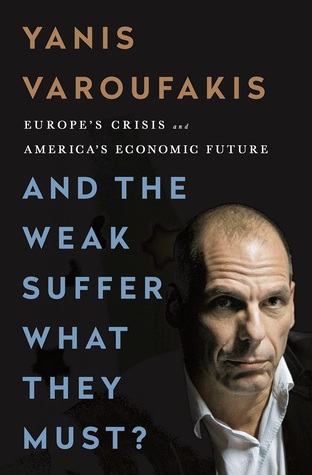Warning: Undefined array key "ssba_bar_buttons" in /usr/home/movgwifi/public_html/yesedinburghwest.info/wp-content/plugins/simple-share-buttons-adder/php/class-buttons.php on line 602
Warning: Undefined array key "ssba_bar_buttons" in /usr/home/movgwifi/public_html/yesedinburghwest.info/wp-content/plugins/simple-share-buttons-adder/php/class-buttons.php on line 602
Warning: Undefined array key "ssba_bar_buttons" in /usr/home/movgwifi/public_html/yesedinburghwest.info/wp-content/plugins/simple-share-buttons-adder/php/class-buttons.php on line 602
 Please buy the book here. OpenDemocracy review.
Please buy the book here. OpenDemocracy review.
The preface is a pearl: a vivid account of childhood in Greece under the fascist turmoil of the late 1960s. It is polished, penetrating and powerful writing which moves the moral consciousness of the reader. There is an urgency underpinning this text requiring that the story he tells must be told now. Three features give the book its solidity and importance: historical breadth and clarity, analytical incisiveness, and – to borrow a phrase from Ghandi – the moral power of its reasoning.
The book fleshes out the narrative of the origins of Europe’s present financial and political crisis, unpacked with a particular eye on Europe’s present crisis. But the basic story line in The Global Minotaur – which also provides the structure here – is a play in three acts.
Act One is set in the years 1944 to 1971. When the present global economy was set up at Bretton Woods, the US was gripped by a New Deal fear of international financial chaos but was not prepared to let its dominance of the post-war globe slip in order to generate a truly self-balancing global economy. This led to the US rejecting Keynes’ plan to construct a genuinely international currency and a genuinely international set of surplus and deficit rebalancing institutions. What the US did instead was a sort of Keynesian-light internationalism that relied on US currency, US controlled international institutions, and the massive US surplus economy to keep all the post-war boats (outside of the Communist sphere) floating.
Finance was tightly under political control during this era. By investing their own surplus into Germany and Japan in particular, the US was able to re-build Europe and Asia and recreate them – politically and economically – in something like its own image. On the whole, things worked exceptionally well for what we now call the post-war boom (1949– 1971). But when the astronomical expense of the Cold War kicked in and the US stopped running a surplus, the Bretton Woods system simply fell over, leaving the globe in a mess.
Act Two is the years 1971 to 2008. Here the US boldly re-configured the global economy so that – by releasing the financialized profit desires of Wall Street from tight regulation – it was able to maintain global dominance as a deficit economy. The Nixon Shock of 1971 produced the stagflation sickness of the 1970s which was then ‘cured’ in the 1980s by the staggering success of financialized and transnationalized corporatism. But the architecture of the post-Nixon area was inherently unstable, inherently disconnected from sustainable human and economic realities, and it all came crashing down in 2008.
Act Three starts in 2008. Here, after Acts one and two have both ended in tears, the global economy is terminally wounded and must either die or face radical reconstructive surgery. Now, despite the various appearances of recovery, it is simply the case that the mechanisms and institutions that used to keep the global economic order in some sort of functional balance have all failed. We have only just started Act Three, but it could end quickly, and violently.
Yes Edinburgh West has a website, Facebook, Twitter, National Yes Registry and a Library of topics on Scottish Politics, including Independence and Social Justice.



